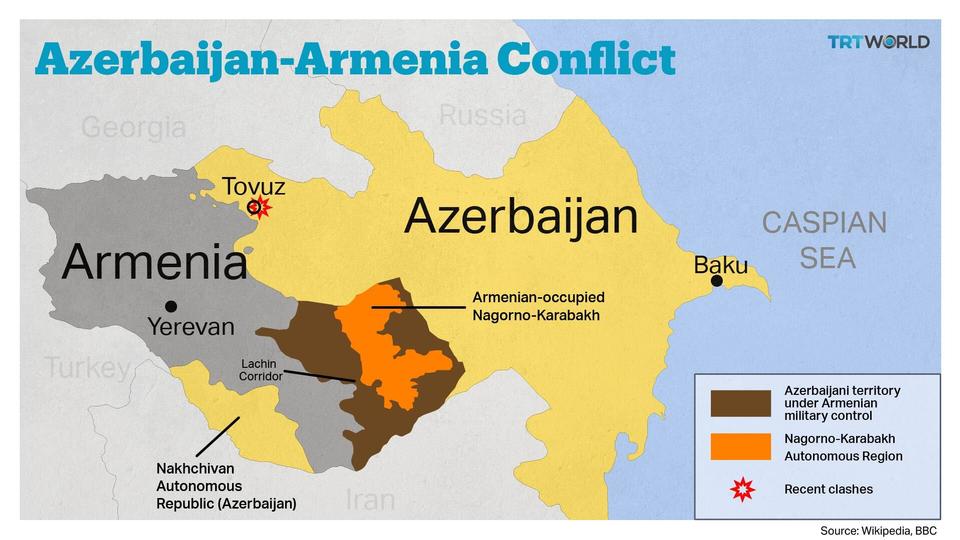BY: William Holmes

PEJOURNAL – Tensions and clashes between Azerbaijan and Armenia over the Nagorno-Karabakh region have resumed amid widespread evidence of the Zionists’ provocation to rekindle the crisis between the two countries, both of which have close ties to Tel Aviv.
The Zionists’ many years of planning to infiltrate and establish a foothold in the Caucasus region is the main reason for blowing up Tel Aviv in the fire of the war between Armenia and Azerbaijan.
The escalation of this conflict, while increasing the opportunity for the Zionists’ intelligence presence under the pretext of helping the parties to the conflict, will naturally have negative security consequences for its neighbors, especially the Islamic Republic of Iran.
The historical course of the Nagorno-Karabakh conflict, especially the presence of multiple actors with different and often conflicting interests, shows that there is little hope of resolving this conflict in the short and medium term.
The series of developments in recent months, which were key to stabilizing Baku’s relations with Tel Aviv and announcing the reopening of the Armenian embassy in occupied Jerusalem, showed that as the Zionists increased its influence on both sides of the conflict, the conflict was likely to flare up. The Republic of Azerbaijan and Armenia are more serious than ever in recent years.
Even in the conflict between Armenia and Azerbaijan in the Tavous region three months ago, the Zionists betrayed Baku and leaked important Baku military information to Yerevan, which was the most important factor in the conflict.
According to this; There are at least two reasons for this trend to continue: first, the governments in Baku and Yerevan are reluctant to resolve the conflict, and second, the interests of the actors involved in the conflict require that the conflict continue.
On the other hand; In addition to Tel Aviv’s provocation of Yerevan, Turkey’s provocations to lead Baku to war with Armenia have reached the highest level in recent years, and Turkish officials and sources have repeatedly said that; “Any decision of the Republic of Azerbaijan to go to war and liberate Karabakh will be supported by Ankara.”
The Turkish government has sent a large number of troops to the Republic of Azerbaijan in the past few months. During this period, a joint military exercise was held between Turkey and the Republic of Azerbaijan, but after the end of the exercise, Turkey did not return its troops home from the territory of Azerbaijan, and the presence of Turkish troops in the territory of the Republic of Azerbaijan turned into a political dispute between Baku and Yerevan.
Of course, these mischiefs were also exposed to the media, and in the face of much Armenian propaganda about Turkey’s move to transfer terrorists from Syria to Azerbaijan, a large number of provocative news about the transfer of Armenians from Syria and Lebanon to Karabakh and surrounding areas were published. Some media outlets even claimed that the PKK had been transferred to Nagorno-Karabakh for military training, and even accused Iran of collaborating.
However, the Islamic Republic of Iran, as it has repeatedly stated, not only has no position for or against either side of the conflict, but can act as a credible mediator to reduce tensions by activating regional capacities and preventing the intervention of extra-regional countries.
Anyway; Although there is no prediction of a decisive victory for one side and a military end to the conflict in the short and medium term, it seems that this conflict will not last more than a few days like the previous conflicts, but it should be noted that there are main causes of war. There is no prospect of healing this scarring bone, and the bedrock for countries seeking to catch their fish from this muddy water will continue to widen.